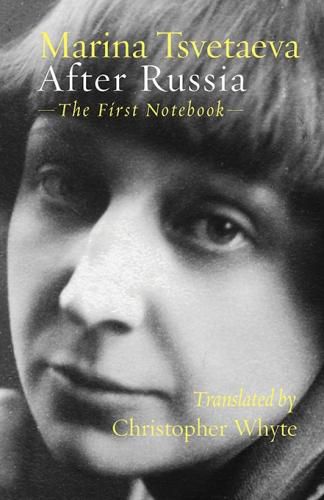Readings Newsletter
Become a Readings Member to make your shopping experience even easier.
Sign in or sign up for free!
You’re not far away from qualifying for FREE standard shipping within Australia
You’ve qualified for FREE standard shipping within Australia
The cart is loading…






This title is printed to order. This book may have been self-published. If so, we cannot guarantee the quality of the content. In the main most books will have gone through the editing process however some may not. We therefore suggest that you be aware of this before ordering this book. If in doubt check either the author or publisher’s details as we are unable to accept any returns unless they are faulty. Please contact us if you have any questions.
After Russia (1928) is considered to mark the high point in Marina Tsvetaeva’s output of shorter, lyrical poems. Tsvetaeva told Boris Pasternak that all that mattered in the book was its anguish. Breathtaking technical mastery and experimentation are underpinned by suicidal thoughts, a sense of exclusion from the circle of human love and companionship, and an increasing alienation from life itself. The sequence “Trees’ evokes the hills and woods of Bohemia where Tsvetaeva loved to roam, while "Wires’ takes telegraph wires as the central image for the geographical distance separating her from Pasternak.
$9.00 standard shipping within Australia
FREE standard shipping within Australia for orders over $100.00
Express & International shipping calculated at checkout
This title is printed to order. This book may have been self-published. If so, we cannot guarantee the quality of the content. In the main most books will have gone through the editing process however some may not. We therefore suggest that you be aware of this before ordering this book. If in doubt check either the author or publisher’s details as we are unable to accept any returns unless they are faulty. Please contact us if you have any questions.
After Russia (1928) is considered to mark the high point in Marina Tsvetaeva’s output of shorter, lyrical poems. Tsvetaeva told Boris Pasternak that all that mattered in the book was its anguish. Breathtaking technical mastery and experimentation are underpinned by suicidal thoughts, a sense of exclusion from the circle of human love and companionship, and an increasing alienation from life itself. The sequence “Trees’ evokes the hills and woods of Bohemia where Tsvetaeva loved to roam, while "Wires’ takes telegraph wires as the central image for the geographical distance separating her from Pasternak.